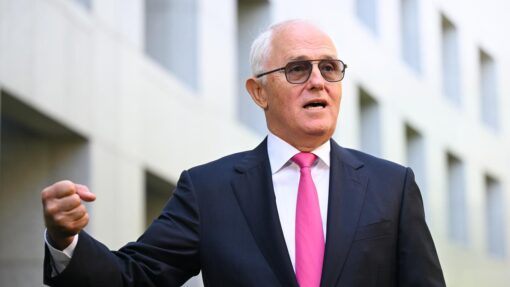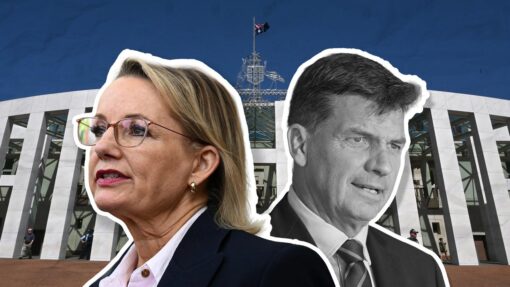‘Drover’s dog’ could deliver budget surplus: Coalition
Poppy Johnston |
The federal opposition has written off the likely frisson that will occur if the government delivers a budget surplus, saying a “drover’s dog” could do it.
Treasurer Jim Chalmers could report a small, albeit temporary, surplus for this financial year followed by smaller deficits over the out years when he hands down the books for 2023/24 on Tuesday.
Financial market economists are tipping the budget to be back in the black in 2022/23 to the tune of up to $2 billion, compared to the previous forecast in October of a deficit of $36.9b.
They are also watching to see if Dr Chalmers reveals smaller deficits for the forward estimates period, including a possible $25b in 2023/24 compared to a previously forecast $44b.
The budget is being supported by soaring commodity prices for iron ore and coal, a tight labour market and faster wage growth – all of which are boosting tax revenues.
“At a time when revenue has been soaring, when commodity prices are going through the roof, and of course, when bracket creep is allowing increased income tax take, a drover’s dog could deliver a surplus on Tuesday night,” coalition finance spokeswoman Jane Hume said on Saturday.
“The real test for Jim Chalmers is can he sustain that surplus.”
Dr Chalmers told AAP the nation will have to wait until 7.30pm Tuesday to see where the numbers settle.
“What is already clear, is if we had taken the same approach to revenue upgrades as our predecessors, then we wouldn’t be anywhere near having this conversation,” he said in an interview.
“The budget is improving in the near term for a number of reasons, but our responsible and restrained approach to spending, which sees most of it go to the bottom line, is what’s making the biggest difference to the budget.”
Opposition Leader Peter Dutton claimed if Labor achieved a surplus it would only be for one reason.
“And that is the economic management of the coalition government over the course of the last nine years,” he said in Hobart on Saturday.
“When we were coming into COVID, we had balanced the budget … We spent a lot of money during the course of COVID to keep people in jobs.”
While inflation remains top of mind, the treasurer is holding out the prospect that workers can expect to see pay packets growing faster than prices by early next year.
An improvement in real wages, which accounts for the corroding effect of inflation, was previously earmarked for midway through 2024.
Explaining the shorter wait time for real wage growth as plotted out in new Treasury forecasts, Dr Chalmers said nominal wages were expected to grow higher and inflation – now past its peak of around 7.8 per cent – was on track to cool off more quickly.
He told AAP a cost of living package to be announced in the budget was carefully designed to push down inflation rather than fuel it.
“The cost of living package in areas like the energy bill relief will put downward pressure on the consumer price index, because it will make energy cheaper than they would otherwise be,” he said.
Updated forecasts from the Reserve Bank, released on Friday, also suggested wages were going to start outpacing inflation ahead of schedule.
Like Treasury, the central bank foresees inflation easing more rapidly in the near term.
Dr Chalmers agreed inflation was the number one concern around the country.
“You’ll see in the budget, that our efforts to provide cost of living relief, our efforts to clean up the mess in the budget, and our efforts to lay the foundations for future growth, are all influenced in one way or another, by the magnitude of this inflation challenge,” he said.
AAP


